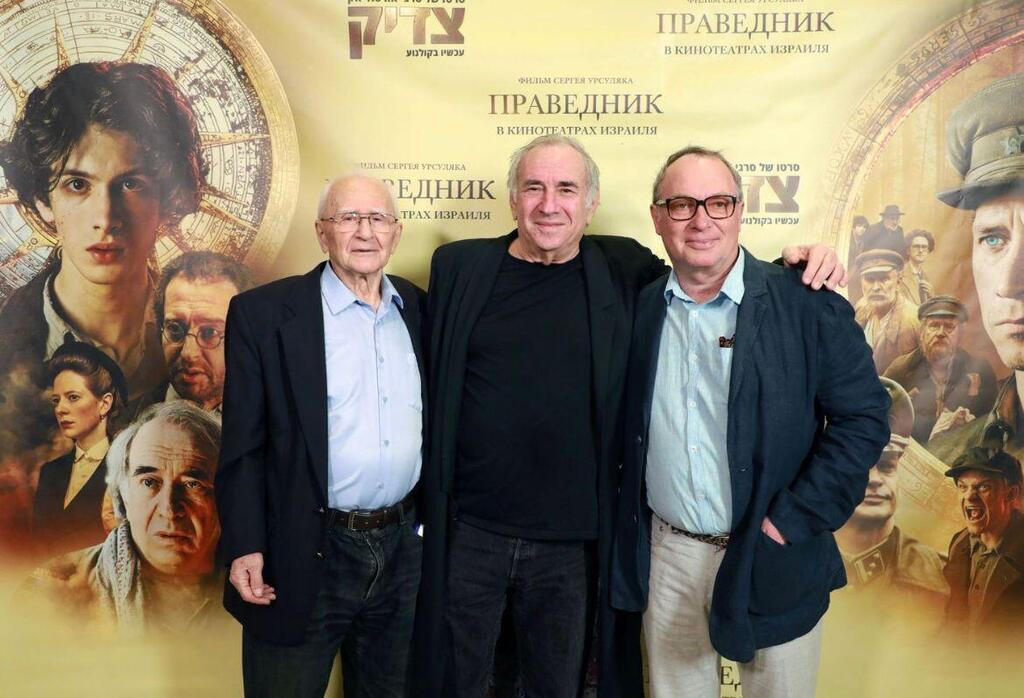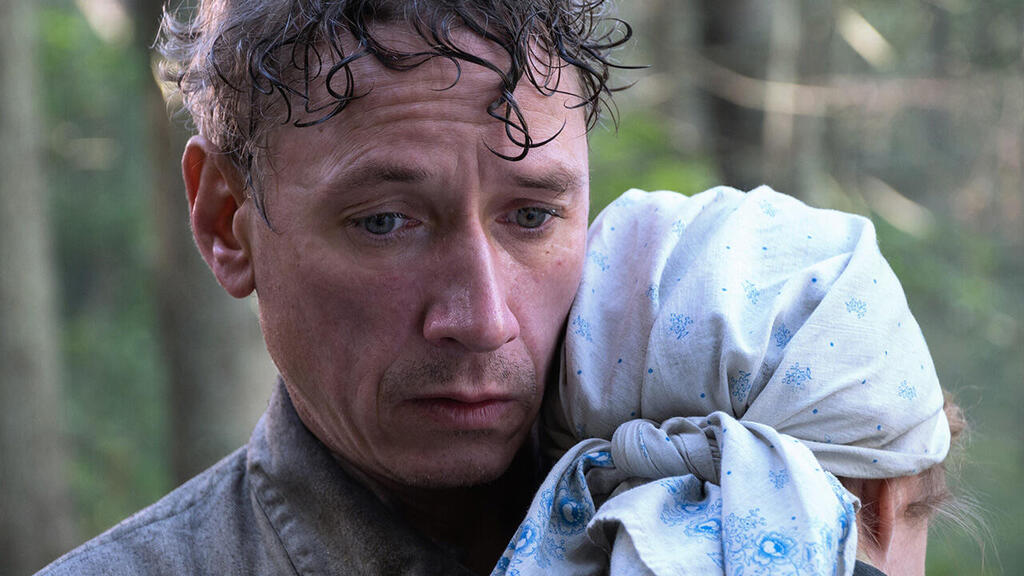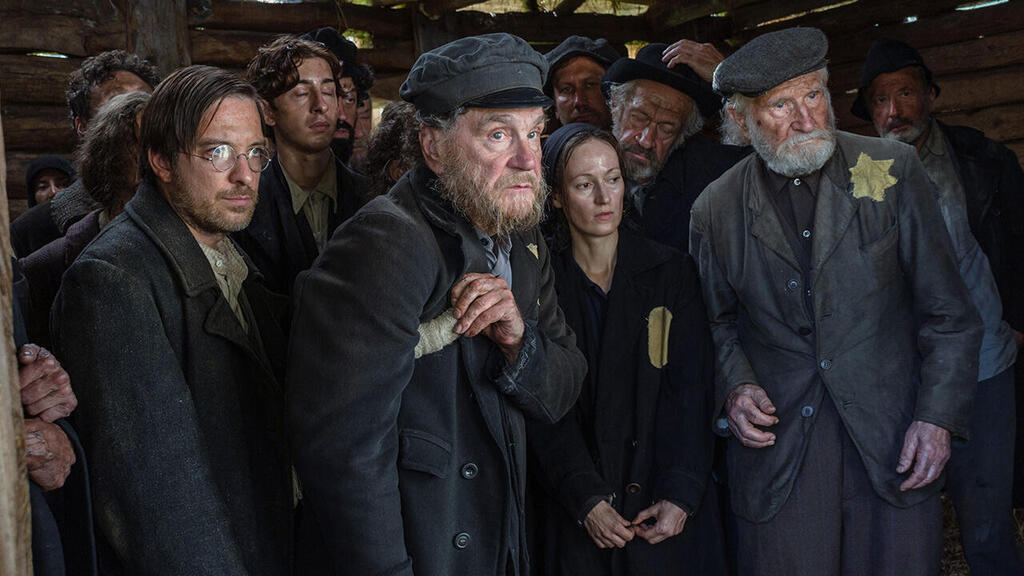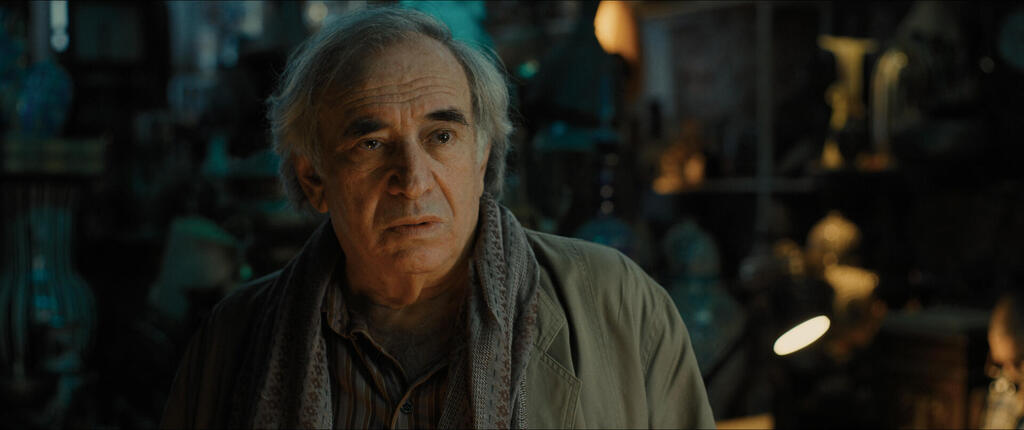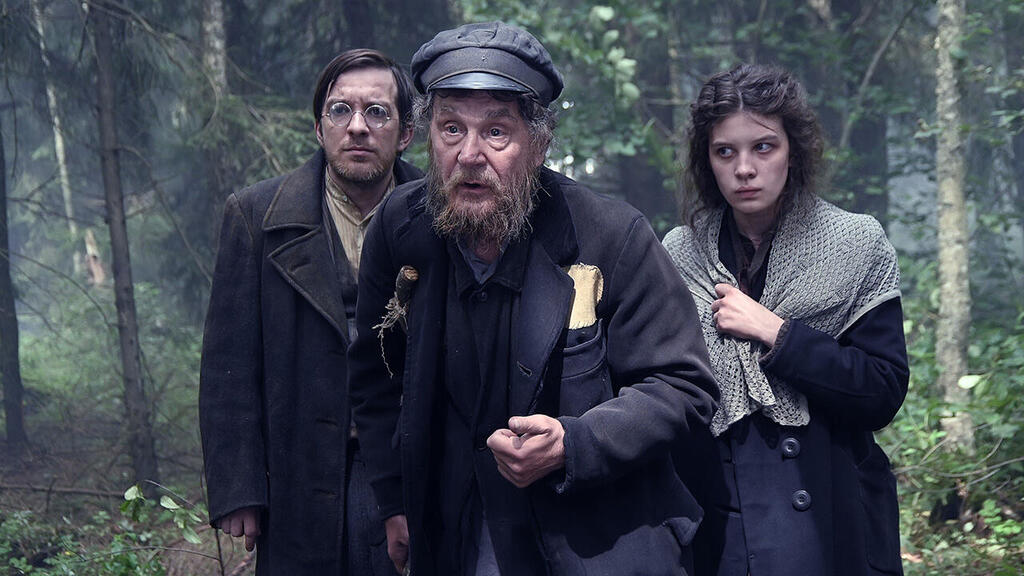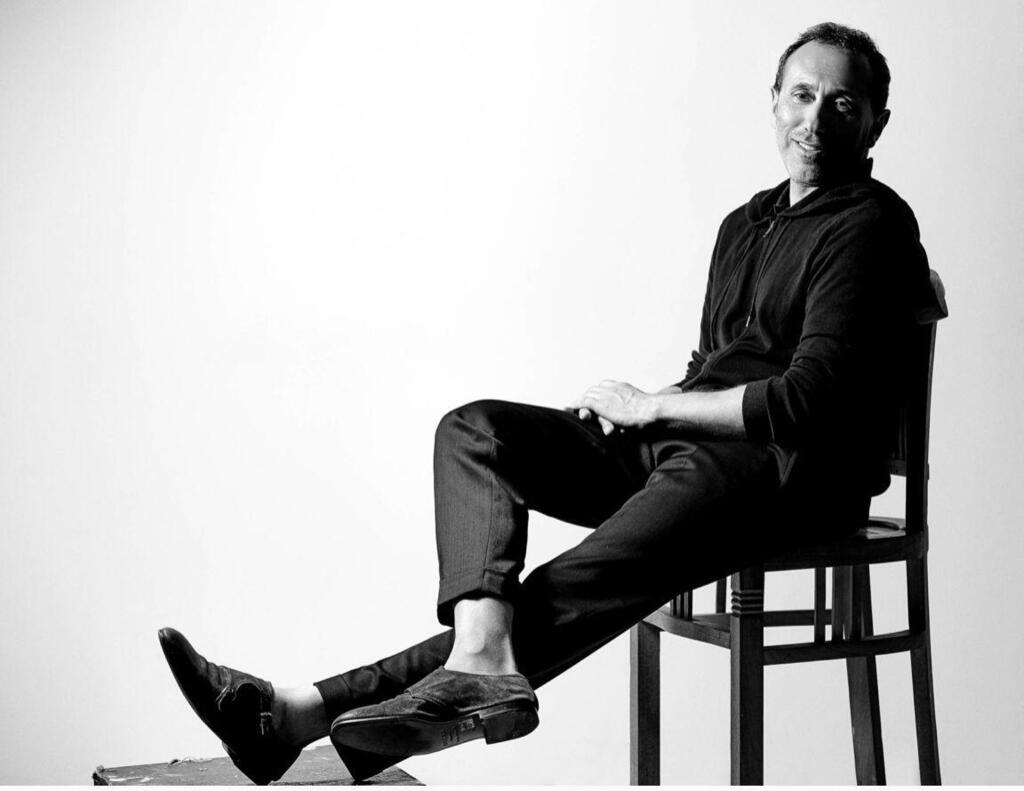Trailer for 'Tzadik'
(Video: KinoRai)
When Russian director Sergei Ursuliak planned to shoot in Israel as part of his work on his new film "Tzadik," (Righteous) he didn’t think it’d be so complicated. The filming was postponed twice due to the COVID pandemic, and once again due to the war in Ukraine.
More Stories:
"Initially, we planned to start filming in Israel, but there was a lockdown. So, we filmed in Belarus, then there was a lockdown in Israel for a second time," he recalls.
Russia’s invasion of Ukraine disrupted his plan once again. "We arrived in January, prepared everything, cast the actors, and were supposed to start filming at the end of February,” he says.
“We arrived at the end of February when the war began – and after spending a lot of money, we had to leave for Russia because they blocked bank transfers, and we had no way to pay salaries,” he recounts.
“So, work was postponed again, and only in June 2022, after the producers found solutions to our monetary issues, we came to Israel and completed the filming."
"Tzadik" (Pravednik in Russian: Праведник) is based on the true story of Nikolay Kiselyov, a Red Army officer during World War II, who saved over 200 Jews from the Nazis and became known as "Righteous Among the Nations."
Kiselyov led the surviving Jews of the Dolginovo Ghetto, including women, men, and children, on a dangerous and arduous journey spanning 1,500 kilometers through the forests of Belarus.
"Anton Zlatopolsky, a Russian TV channel executive, told me this story as a proposal for a joint project," Ursuliak says. "When I heard the script would be written by Gennady Ostrovsky (a renowned Russian screenwriter), I said it would definitely succeed.”
“Half a year later, I had a great script – that needed to be shortened. it was Human, touching, profound, tragic, and had wonderful humor, so I agreed to work on it. Were it not for the war and COVID, we would’ve finished it already.” He explains.
According to Ursuliak, his paternal grandmother was Jewish. "My Ukrainian grandfather saved my grandmother Niusia from the ghetto in Kamianets-Podilskyi and hid her until after the war.”
How much harder is it to film in Russia today due to the war?
"It gets hard when you touch on something the Russians would rather you don’t, but the situation in Russia doesn’t endorse honest and differing opinions. I want Israeli readers and viewers to know that we made the film with great love for the people Kiselyov saved, during a time when we were capable, empathy towards one another, and self-sacrifice in Russia."
'The Israeli actors amazed me'
Israeli actors also star in the film, including Dov Glickman, who portrays a Holocaust survivor named Moshe Tal in his later years as a retired musician. "They offered me quite a large number of options for casting this role, and they told me, 'Glickman is a great actor, but it's not certain he’ll be on board," the director recalls.
"They said, 'We don't recommend relying on him because he's very busy and expensive and doesn't agree to every offer.' Nevertheless, Glickman arrived."
“We spent about an hour together, during which we read the script and joked with one another. I understood what a wonderful actor he is, and it seemed to me that he was also excited. In the end, we had a great time working together. He’s an exceptional actor."
Dov Glickman: "I was born after the Holocaust, so I don't have a personal connection to the story, but I have an emotional connection to any story that touches the heart."
"In general, the Israeli actors amazed me," he says. "About 50 people came to audition. None of them were even a minute late, none of them came to the audition without knowing their lines. They had such a strong work ethic that I had a hard time deciding whom to choose. I really enjoyed working with the Israeli actors."
Glickman himself testifies that he greatly enjoyed portraying the challenging role. "I was born after the Holocaust, so I don't have a personal connection to the story, but I have an emotional connection to any story that touches the heart," he says.
"I had a grandfather and grandmother who were taken and killed in Diatlova in Lithuania, but I never knew them. My parents weren’t Holocaust survivors. But this story touched me, and I was interested in participating in the film."
According to Glickman, "Sergei is a wonderful director, and we had a common language despite him not speaking Hebrew or English and me not speaking Russian. We knew how to communicate with each other in an extraordinary way, much better than people who speak the same language, because we shared the same wavelength.”
“Although there was an interpreter, even without him, I understood what Ursuliak was saying, and he knew what I was saying. He has a sense of humor and we had a great connection on set. There were some scenes I really enjoyed working on.”
Your character holds grudges against those who wronged him for his entire life, do you feel like you could do the same?
"I don't know if I’d hold a grudge. I was happy to act as a character who was bitter, angry, and resentful. There’s something enjoyable in acting characters acting in extreme ways. Most of the roles I've done in recent years have been dramatic.”
The movie is currently being screened in Israeli cinemas, and also presents the bravery of Jewish partisans in an unprecedented way in Russian cinema, showing the Jewish dilemma between Sabbath observance and saving lives.
The plot moves between the past in the forests in Belarus, and the year 2005 in Israel when efforts were made to get "Yad Vashem" to recognize Kiselyov as one of the Righteous Among the Nations.
Holocaust survivor Leon Rubin, an 88-year-old Israeli, participated in the journey led by Kiselyov when he was a seven-year-old child. "'Tzadik' is a fictional film where many things are the product of the creators' imagination, but it’s an impressive, meaningful, and historically significant film about what really happened," he told Ynet.
"When we started the journey, we were 270 people. We walked only at night, and when we crossed the German-Soviet front, 218 of us were left. The Germans attacked us several times, and we killed several of them but not in the quantities shown in the movie."
And what about Nikolai Kiselyov?
"As someone who was a seven-year-old child at the time, I don't remember him, but according to the stories told at home, he was truly an extraordinary person. A true leader with exceptional courage," Rubin says.
"He led us with both his strength and knowledge. The film is very moving and highlights his modesty. When I think about how he took on this mission, I understand that he was a special type of person."
'You can't write about a historical character if you use facts alone'
The film’s, Jewish screenwriter, Gennadiy Ostrovsky, explained what led him to choose a specific creative approach. "I read a lot of literature about Kiselyov and Jewish partisan groups. There was a documentary film about Kiselyov, and several directors tried to make a fictional film back in 2014, which didn't succeed.”
“They just depicted the documentary’s details, but that doesn’t work for a fictional film, as you have to use the story to excite and touch your audience. You can't write beautifully about a historical character if you use facts alone.”
"Therefore, I took a different approach, based on my knowledge of Jewish partisan groups in Belarus and the people who were killed or survived there. There are very few films about Jewish partisans, and none of them are Russian.” He says.
“So, I followed my intuition, I understood that Kiselyov is a true hero, but I didn't want to turn him into an icon, because he was a human being. Therefore, I chose to rely on factual aspects of his life, to depict his character. Seeing as he was an accountant, I derived his responsible and meticulous characteristics.”
Ostrovsky grew up in Berdychiv, a city in Ukraine filled with Jewish history. In the script, he incorporated Jewish concepts and jokes based on things he heard from his father, who made Aliyah and now lives in Givat Shmuel.
"Many of the traits I gave Moshe Tal are based on my father, and I also wrote other characters in the film inspired by the Jews of Berdychiv," he explains. "My uncle fought on the front lines, and most of my family members were killed by the Germans and local Ukrainian policemen during World War II."
In his film, it was important for Ursuliak to show the two timelines and the connection between the past and the present. "It was very important for me to show Israel and the Jews who survived," he confesses, "and to show the many people who survived thanks to Kiselyov."




